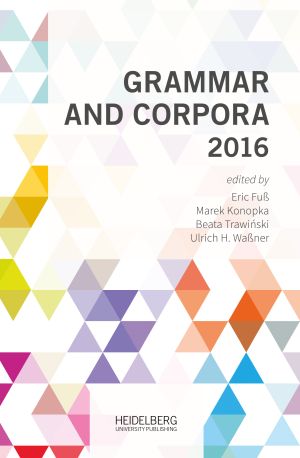How to Cite
License (Chapter)

This work is licensed under a Creative Commons Attribution-ShareAlike 4.0 International License.
Identifiers (Book)
Published
Phonological Analysis at the Word Level: The Role of Corpora
Abstract Notions such as “corpus-driven” versus “theory-driven” bring into focus the specific role of corpora in linguistic research. As for phonology with its intrinsic focus on abstract categorical representation, there is a question of how a strictly corpus-driven approach can yield insight into relevant structures. Here we argue for a more theory-driven approach to phonology based on the concept of a phonological grammar in terms of interacting constraints. Empirical validation of such grammars comes from the potential convergence of the evidence from various sources including typological data, neutralization patterns, and in particular patterns observed in the creative use of language such as acronym formation, loanword adaptation, poetry, and speech errors. Further empirical validation concerns specific predictions regarding phonetic differences among opposition members, paradigm uniformity effects, and phonetic implementation in given segmental and prosodic contexts. Corpora in the narrowest sense (i.e. “raw” data consisting of spontaneous speech produced in natural settings) are useful for testing these predictions, but even here, special purpose-built corpora are often necessary.
Keywords Speech corpora, German vowels, phonological grammar, abstractness, Optimality Theory




